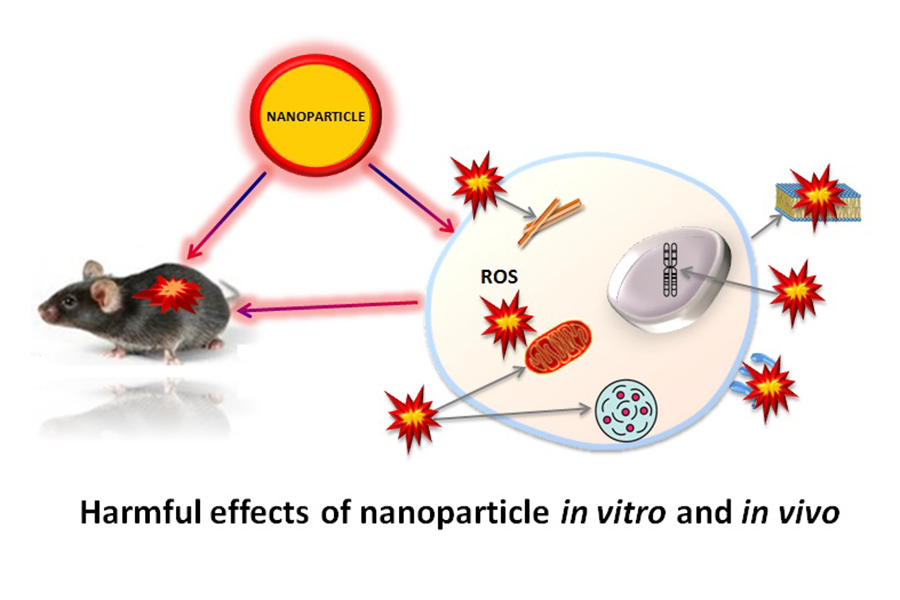The Nanoscale Research Letters has accepted for publication a study carried out by researchers of the Laboratory of Nano-Bioengineering (LNBE) in collaboration with their colleagues from the University of Reims, France, and Sechenov First Moscow Medical University, Russia, which addresses the toxicity of nanomaterials, one of the most urgent problems entailed by the use of nanotechnologies (A. Sukhanova, S. Bozrova, P. Sokolov, M. Berestovoy, A. Karaulov, I. Nabiev, Dependence of Nanoparticle Toxicity on Their Physical and Chemical Properties).
Nano-sized particles are increasingly widely used in industry, instrument-making, and biomedicine. They are used in many fields, including diagnosis, targeted delivery and controlled release of drugs, next-generation displays and TV sets, solar cells, and optoelectronics. However, applications of nanoparticles are restricted by their toxicity. Penetrating into organs and even into cellular organelles, nanoparticles interact with macromolecules to alter their structure, thereby disturbing intracellular processes; besides, they induce strong immune response of the body.
The authors of the paper to be published in the Nanoscale Research Letters have systematized the mechanisms of nanoparticle toxicity and revealed the patterns of its dependence on not only the chemical composition, but also the size, shape, and charge of the ultrasmall particles, the composition of their surface ligands, and other characteristics. Special attention is paid to the problem of obtaining nontoxic nanoparticles to be used in vivo for diagnosis and treatment of various oncological, infectious, and inflammatory diseases.

It should be specially noted that the Nanoscale Research Letters editorial office has considered and accepted the study by LNBE researchers and their colleagues in record-breaking time, which further confirms that the subject dealt with in the paper is topical.
The study was supported by the State Contract with the Ministry of Education and Science of the Russian Federation (contract no. 16.1034.2017/PCh).
Contact:
Svetlana V. Bozrova, junior researcher, LNBE (svetaboz@yandex.ru) / www.lnbe.mephi.ru





